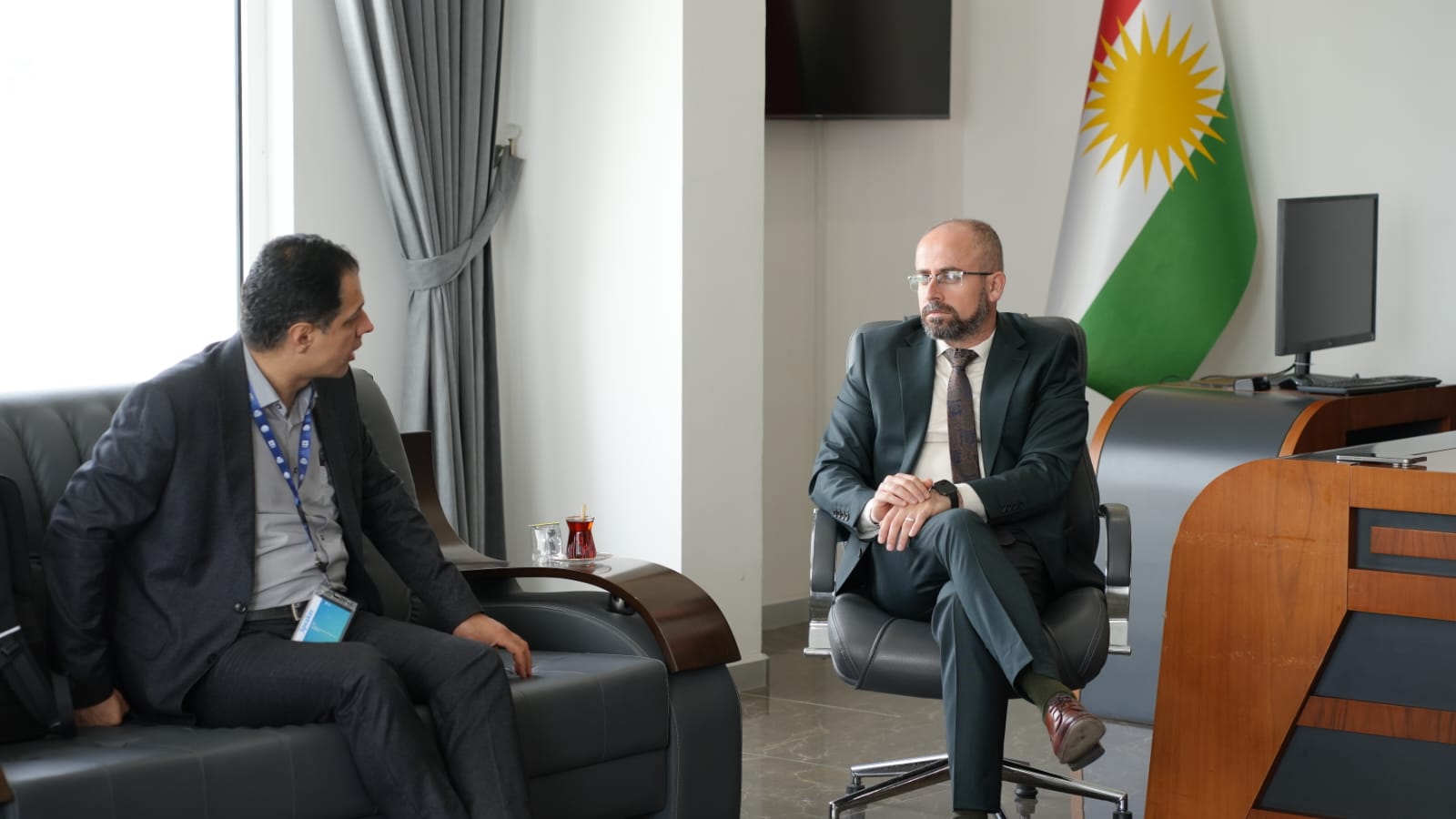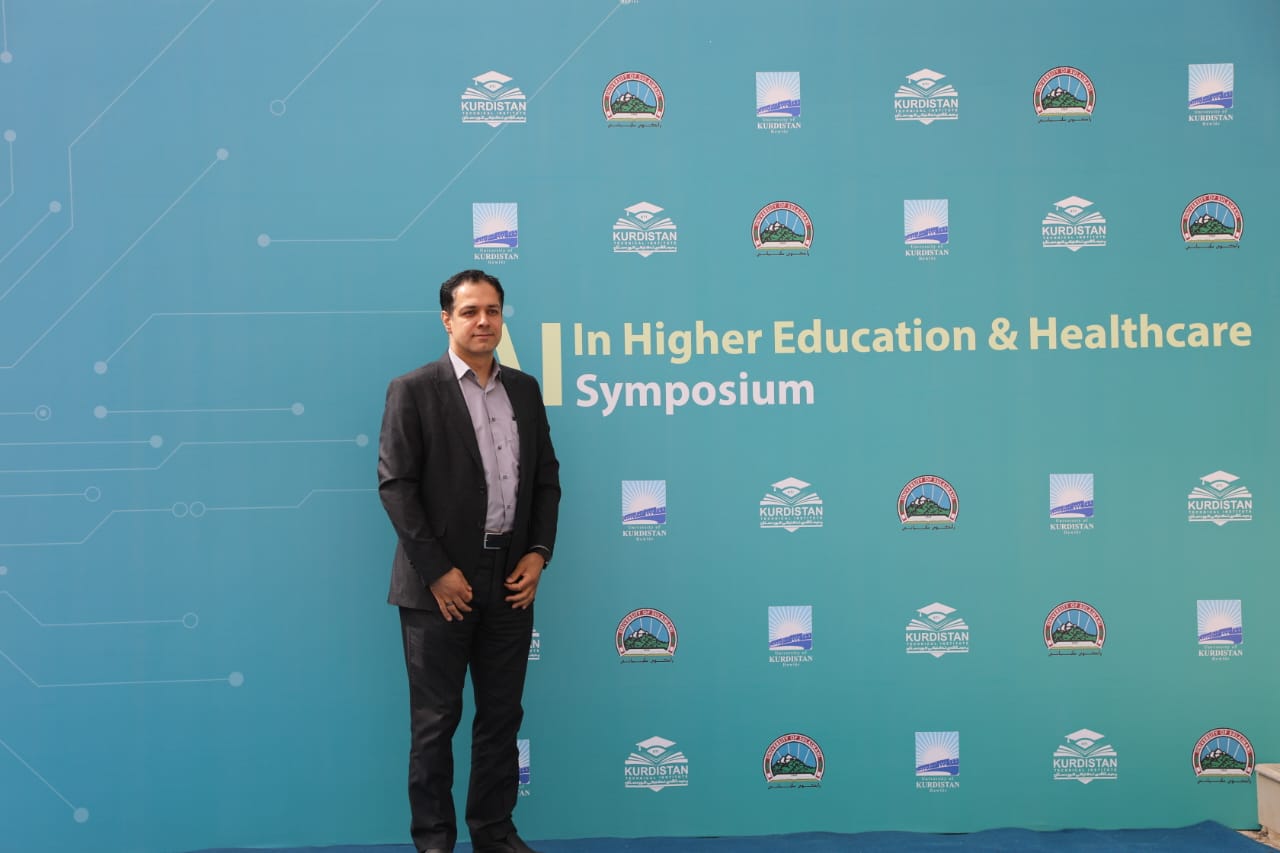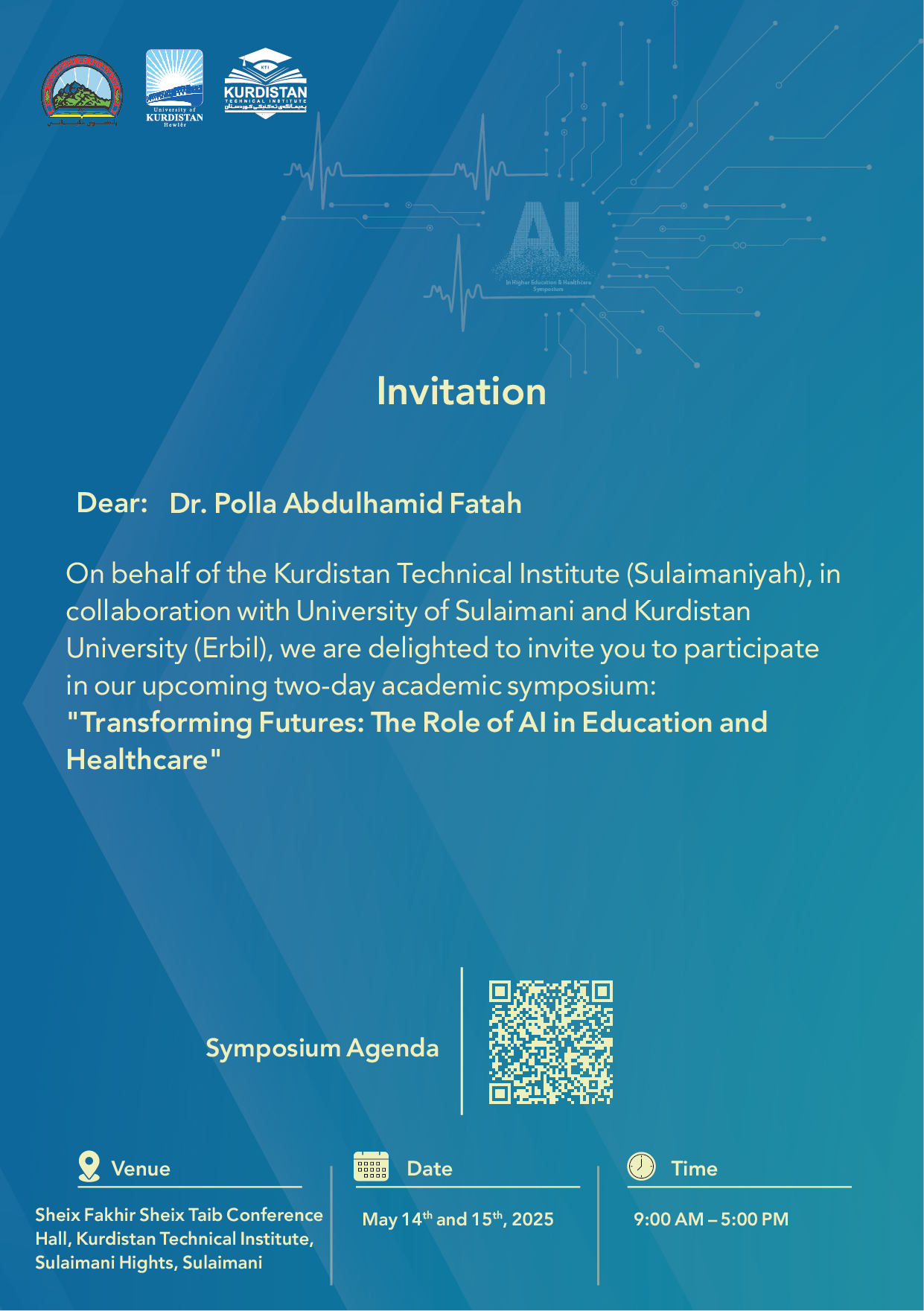Preparing Students for an AI-Driven Job Market – My Presentation in Sulaimani
Last week, I had the pleasure of speaking at a symposium on artificial intelligence and students at the Kurdistan Institute in Sulaimani. It was an energizing gathering of educators, students, and technology professionals, all sharing one big question: How can we prepare our students for a job market that is being reshaped by AI every single day?

Why I Spoke About AI’s Urgency
I opened my talk with a simple truth — AI is no longer a future trend, it’s here now, changing the way we work. We’re seeing it in tools like Grammarly and ChatGPT that check grammar and rewrite text faster than any human, in customer service chatbots working 24/7, and in transcription tools like Whisper that can turn hours of speech into accurate text in minutes.
The message I wanted to share was clear: AI often replaces tasks, not entire jobs. But this means jobs themselves are evolving. The skills that will matter most in the future are judgment, ethics, creativity, and design thinking — the things AI can’t do.
.jpg)
Jobs That Are Already Changing
I walked the audience through examples of professions being transformed by AI. Legal assistants now work alongside systems that automate document drafting and summarizing, while radiologists collaborate with AI that can detect diseases with remarkable accuracy, shifting their role toward verification and complex case analysis. Translators find that machine translation handles basic tasks faster, but humans remain essential for high-context, nuanced work that requires cultural understanding.
Developers increasingly use tools like GitHub Copilot to write and debug code, allowing them to focus more on designing solutions and system architecture. Accountants see automation handling reconciliation, invoices, and even tax preparation, freeing them to provide strategic financial guidance and analysis.
.jpg)
What Universities Can Do
I believe our universities must lead this transition through comprehensive curriculum innovation that integrates AI into computer science, business, health, and engineering programs. This involves creating interdisciplinary degrees that blend AI expertise with domain knowledge while making AI literacy part of every academic discipline.
Universities must establish continuous learning frameworks that offer micro-credentials and ongoing education opportunities, ensuring both students and professionals can keep their skills fresh in this rapidly evolving field. Hands-on experiences through hackathons, internships, and projects using real datasets provide practical application of theoretical knowledge. Building dedicated AI labs creates spaces where innovation, research, and industry collaboration converge.
Industry integration becomes essential through strategic partnerships that ensure students graduate ready for real-world AI challenges. Universities should actively shape policy to influence how AI is integrated into various sectors while creating direct pathways for students to work on meaningful AI projects.
Equally important is the development of human-centered skills that strengthen creativity, teamwork, and ethics. Universities must emphasize critical thinking and problem-solving abilities while developing emotional intelligence and interpersonal communication skills that remain uniquely human.
.jpg)
Global Inspiration, Local Action
I shared examples from universities like Stanford and Oxford that are leading the way in AI education. Here in Kurdistan, at the University of Kurdistan Hewlêr, we have already established a fully functional AI Research Center. I’ve also proposed to the Ministry of Higher Education that AI should become a compulsory subject across all disciplines.
Our region has unique opportunities to lead in AI education through cultural integration that incorporates Kurdish language processing into AI research, addressing specific challenges in Kurdistan’s economy while learning from global best practices. Cross-border collaboration enables us to maintain local relevance while benefiting from international expertise. Government partnerships create supportive frameworks that facilitate the integration of AI education across all academic levels.

The Path Forward
Standing in Sulaimani that day, surrounded by curious students and engaged academics, I felt encouraged. Our region has the talent, the ambition, and the vision to not only keep pace with AI-driven change but to lead it.
For students, the path forward requires embracing lifelong learning as the AI landscape changes rapidly, making continuous education essential. Developing hybrid skills that combine technical AI knowledge with domain expertise becomes crucial, while focusing on human elements like creativity, ethics, and emotional intelligence that remain uniquely human. Staying curious about how AI can improve existing processes and create new opportunities, while building networks with peers, mentors, and industry professionals in the AI space, will define successful careers.

Educators and institutions must pursue curriculum redesign that integrates AI across all disciplines, not just computer science. Faculty development through training educators to understand and teach AI concepts becomes essential, alongside infrastructure investment in labs and resources for hands-on AI learning. Building bridges between academia and the professional world through industry partnerships, while advocating for supportive educational policies with government, will create the foundation for AI education excellence.
Resources and Materials
For those interested in diving deeper into the topics discussed during my presentation, comprehensive slides covering AI technologies, tools, and their applications in various fields are available through the AI Tech Types and Tools presentation materials.
Looking Ahead
Preparing our students for the future isn’t just about teaching technology — it’s about giving them the skills and mindset to thrive in a world where change is the only constant. The enthusiasm I witnessed at Kurdistan Institute gives me great hope for the future of AI education in our region.
As we continue to navigate this AI revolution, collaboration between institutions, industry, and government will be crucial. The conversation we started in Sulaimani is just the beginning of a larger movement to ensure our students are not just prepared for the AI-driven future, but are positioned to lead it.
This presentation was part of ongoing efforts to promote AI literacy and prepare the next generation of professionals in the Kurdistan Region. The symposium, held on May 14, 2025, at Kurdistan Institute in Sulaimani, brought together educators, students, and technology professionals to discuss artificial intelligence and student preparation for the evolving job market.